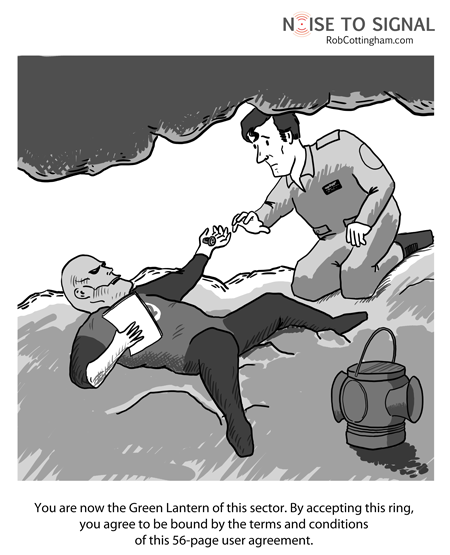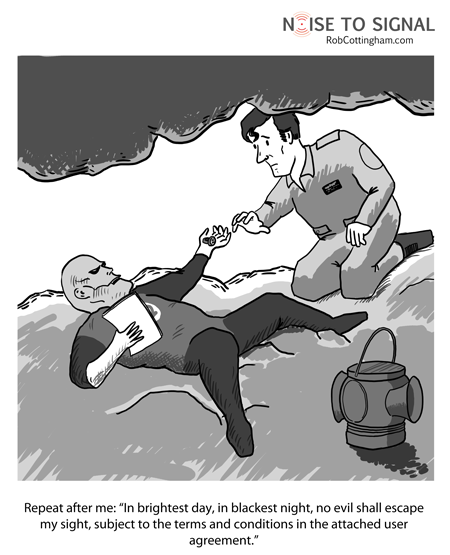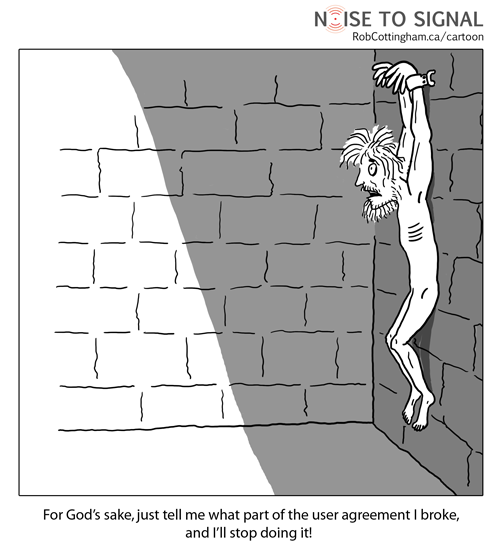If the minions of Satan ever want to seize your soul, they don’t have to trick you into signing it away in exchange for untold wealth, fame or a sneak peak at Uncharted 3: Drake’s Deception.
All they have to do is tuck a provision into the iTunes user agreement. Something like “The Licensed Application and related documentation are ‘Commercial Items’, as that term is defined at 48 C.F.R. §2.101, consisting of ‘Commercial Computer Software’ and ‘Commercial Computer Software Documentation’, as such terms are used in 48 C.F.R. §12.212 or 48 C.F.R. §227.7202, as applicable. You further agree that your immortal soul, and all derivative works thereof, are the sole property of the Dark Lord.”
(Facebook would work, too. But iTunes has achieved special notoriety because its terms and conditions are extraordinarily long. Not excessively long, according to a CNN analysis. But long enough to occupy a pretty big chunk of Richard Dreyfuss’s time.)
But you know what? That’s how it ought to be. User agreements should be interminable, impenetrable and indecipherable, because:
- The online economy is the only one that actually seems to be working at the moment.
- The legal and business environment most online companies operate in demands that they impose outrageously sweeping conditions on users.
- If we knew just how much of our freedom, privacy and personal autonomy we were surrendering, we might opt out. And at the very least, it would depress the hell out of us.
It would be the height of irresponsibility for companies to come clean with users about just how draconian those terms of service are. They would threaten both the fragile economy and the even-more-fragile public mood.
So it’s our economic and social duty not to read too closely. Instead, scroll down as quickly as you can, click “I Agree” and enjoy that brief whiff of brimstone.
When I first wrote the caption for this cartoon, it read Repeat after me: “In brightest day, in blackest night, no evil shall escape my sight, subject to the terms and conditions in the attached user agreement.” But a quick bit of focus testing revealed that hardly anyone got it, because so few people recognize the Green Lantern oath.
Honestly. What are they teaching in schools these days?
Updated: Angus, just for you:




